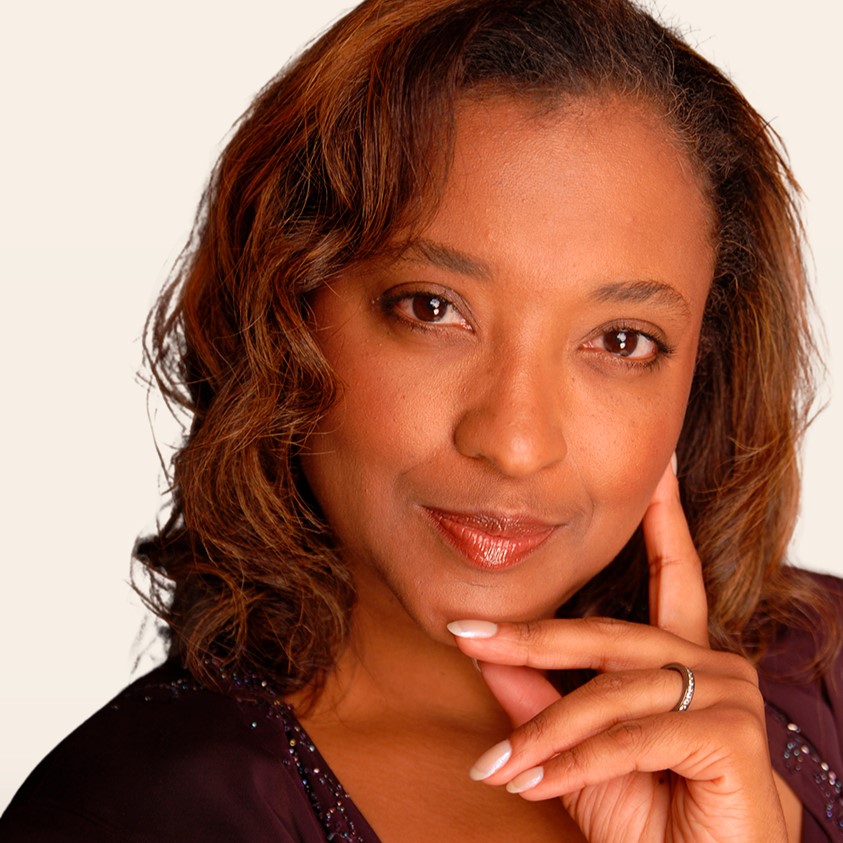The Divine Nine: History of Black Sororities and Fraternities
- January 22, 2024
Black Greek-letter organizations have made a deep impact on Black American culture. Learn more about the fraternities and sororities that started it all.

The Divine Nine is the nickname of a group of nine historically Black Greek-letter organizations called the National Pan-Hellenic Council (NPHC). These nine organizations have a significant place in Black American history and culture. Collectively, these organizations comprise nearly 4 million members. These organizations are a source of family and community to many Black students, with some first-generation members and others joining as a legacy.
The Divine Nine organizations have been around since the early 1900s and have contributed greatly to Black American culture. They are committed to public service, scholarship and brother- and sisterhood. These traditions have trickled down through generations of members and even infiltrated pop culture. The Divine Nine’s impact on Black American life and culture is apparent.
Which Greek-Letter Organizations Are Part of the Divine Nine?
The Divine Nine comprises nine organizations in total, each with a different purpose and attributes. Here is a short breakdown of each.
- Alpha Phi Alpha Fraternity, Inc.: With the aim of
manly deeds, scholarship, and love for all mankind,
Alpha Phi Alpha fraternity is the first intercollegiate Greek-letter organization founded for Black men in the United States. Seven students at Cornell University started the organization on December 4, 1906. It started out as a study group. - Alpha Kappa Alpha Sorority, Inc.: Alpha Kappa Alpha Sorority, whose members are also known as the Ivies, is the oldest established Greek-letter organization for Black women. The organization started at Howard University on January 15, 1908. They aim to be of
service to all mankind.
- Delta Sigma Theta Sorority, Inc.: This organization focuses deeply on community service, with special emphasis on serving the Black community. Delta Sigma Theta, founded on January 13, 1913, at Howard University, aims
to provide assistance and support through established programs in local communities throughout the world.
- Kappa Alpha Psi Fraternity, Inc.: Also known as the Nupes, Kappa Alpha Psi has been dedicated to brotherhood and service in the Black community since its founding on January 5, 1911, at Indiana University Bloomington. It has two names, the other being Phi Nu Pi. The fraternity’s motto is
Achievement in Every Field of Human Endeavor.
- Omega Psi Phi Fraternity, Inc.: Founded on November 17, 1911, at Howard University, this organization is based on four principles:
Manhood, Scholarship, Perseverance, and Uplift.
Omega Psi Phi aims to elevate its members and the Black community. - Phi Beta Sigma Fraternity, Inc.: The only NPHC member fraternity with a constitutionally-bound sister Greek-letter organization — Zeta Phi Beta — Phi Beta Sigma‘ was established on January 9, 1914, at Howard University. Its mission focuses on community service, building brotherhood, and promoting scholarship.
- Zeta Phi Beta Sorority, Inc.: The sister organization to Phi Beta Sigma, Zeta Phi Beta sorority’s ideals include
Scholarship, Service, Sisterhood and Finer Womanhood.
Zeta Phi Beta, founded on January 16, 1920, at Howard University, prides itself on achieving a legacy of excellence. - Sigma Gamma Rho Sorority, Inc.: Sigma Gamma Rho is the only Black sorority founded at a predominantly white institution, Butler University in Indiana. Founded on November 12, 1922, its mission is to better women’s lives through
community service, civil, and social action.
- Iota Phi Theta Fraternity, Inc.: Founded during the Civil Rights movement on September 19, 1963, at Morgan State University, Iota Phi Theta fraternity was the last member admitted to the NPHC. They have a long history of social service. The organization is dedicated to
making meaningful contributions to society,
with special emphasis on doing so in the Black community.
The History of the Divine Nine
Now known nationally and internationally, the Divine Nine have a long and rich history cultivated over decades of growth.
Initially, fraternities in the United States, like the institutions of higher learning in which they were founded, were exclusively for white male students. Women created sororities in response to the fraternities’ refusal to admit them. Subsequently, when Black students began to enroll in universities, they faced the same issue. So, they created the first Black Greek-letter organizations in response to the racism Black students experienced on campuses.
After the establishment and popularization of historically Black colleges and universities (HBCUs) in the United States, Black fraternities and sororities followed. The organizations began out of fellowship and shared principles rather than as a direct response to racist beliefs and practices. Howard University, in particular, was the founding site for five of the Divine Nine. These organizations quickly spread to other universities in the coming decades, including at primarily white institutions (PWIs).
Black Greek Organizations Formed the NPHC
Howard University students founded the National Pan-Hellenic Council (NPHC) — not to be confused with the National Panhellenic Conference — in 1930 to spark unity and protect the members’ collective interests.
Though some members of NPHC were at HBCUs, others were not and needed a place to ensure their institutions would treat them fairly. The council’s formation ensured that members would have a say on their respective campuses.
The Divine Nine’s Civil Rights Legacy
Black Greek-letter organizations like the Divine Nine have been historically significant for many reasons, including involvement in the Black Arts movement, the Civil Rights movement, the Black Power movement, and most recently, Black Lives Matter. As organizations committed to serving the Black community, these organizations’ missions easily fell in line with the movements’ missions.
Many members of Divine Nine organizations were pivotal figures in the Civil Rights movement, including but not limited to:
- Martin Luther King Jr. (Alpha Phi Alpha)
- Jesse Jackson (Omega Psi Phi)
- Ralph Abernathy (Kappa Alpha Psi)
- Hosea Williams (Phi Beta Sigma)
- Bobby Rush (Iota Phi Theta)
- Coretta Scott King (Alpha Kappa Alpha)
Chapters themselves were also important to the movement, as they formed connections with organizations like the National Association for the Advancement of Colored People (NAACP) and the Southern Christian Leadership Conference (SCLC).
What the Divine Nine Does Today
Today, the Divine Nine is still deeply committed to the Black community. The organizations have not forgotten their history as changemakers and are still dedicated to service, empowerment, and fellowship.
Members of NPHC called for racial justice in 2020, specifically in response to George Floyd’s killing. Individual chapters and members have also demonstrated in support of the message behind the Black Lives Matter movement.
Both collegiate and alum members of the Divine Nine organizations participate in philanthropic efforts — from heart disease awareness to denouncing sexual assault — with the specific cause varying from chapter to chapter. They are all also very involved in voter rights activism.
The Divine Nine at HBCUs
At HBCUs, the Divine Nine are usually intertwined with the history of the schools. They are involved in campus-wide events and are recognized and celebrated by faculty and staff. HBCUs feature Greek life organizations like the Divine Nine at athletic events, professional affairs, and the HBCU homecoming experience — which is much more than just a football game for many HBCUs.
Additionally, members of the Divine Nine understand the powerful network of members, both collegiate and alumni, that come along with joining these organizations. With more people interested in joining HBCUs, those networks become much stronger.
The Divine Nine at PWIs
At PWIs, Divine Nine organizations may be less involved in school-sponsored activities and events, but they are no less committed to their missions. These groups often become hubs for Black and other minority students interested in the principles of Divine Nine organizations.
Additionally, Divine Nine members at PWIs are often leaders of social activism on their campuses. They also tend to be involved with other organizations across campus. Divine Nine fraternities and sororities at PWIs tend to be smaller in number and very tight-knit, with members who are devoted to their new-found families.
#DivineNine #BlackExcellence #CulturalLegacy #Sororities #Fraternities #NPHC #HBCUs #HBCU #FocusQuest
Share on Social Media
facts corner
Featured Articles
-
The Divine Nine: History of Black Sororities and Fraternities
-
The Surge in HBCU Enrollments: Why More Students Are Choosing HBCUs
-
Sacramento State Launches First Black Honors College
-
Juneteenth and the Power of Education: From Liberation to Legacy
-
First-Generation Students: Navigating Challenges, Creating Opportunities
-
A Curated Collection of Powerful Talks for Black History Month: Empower Through Dialogue







